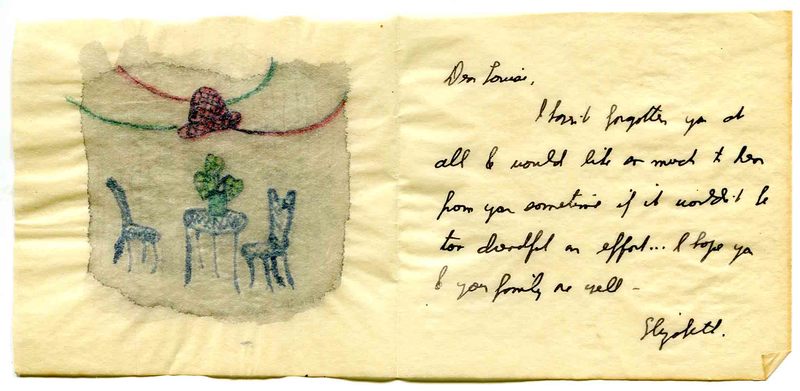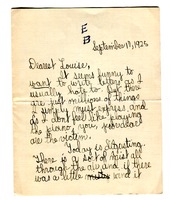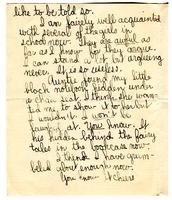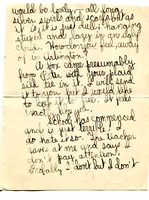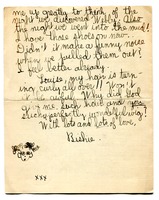The Importance of Letter-Writing
...I would like so very much to hear from you sometime
if it wouldn't be too dreadful an effort...
—Elizabeth Bishop to Louise Bradley, 1943
Letters have long been an important source of biographical information, and a powerful tool for historians of all kinds. They allow the reader to peek behind the curtain and can provide a sense of intimate knowledge of historical subjects, even if this intimacy is borrowed or stolen. The letter takes on a unique liminal status when its writer's major historical contributions are literary; the letters of poets and other writers allow their readers to straddle the line between contextual research and artistic interpretation. Elizabeth Bishop in particular left behind a vast body of correspondence that has proven essential to her establishment as an influential figure in the American literary canon.
Bishop was an intensely private person. Her reputation as the meek and contemplative woman poet was bolstered by her reluctance to appear publicly, as well as the narrow scope and quiet realism of her poetic ouevre, and was not seriously challenged until after her death in 1979. As a result, and because she refused to include her work in anthologies of exclusively female poets, she was largely passed over by feminist literary critics during her lifetime, who instead celebrated more explicitly confessional and subversive poets like Sylvia Plath. Works like Robert Giroux's One Art: Letters, published in 1994, shed light on her complexity, her incisive wit, and the importance of her voice as one of America's prominent LGBTQ+ poets through the publication of hundreds of letters to Robert Lowell, Marianne Moore, and others. Today, largely owing to an impressive volume of letters that supplement her limited body of published work, Bishop is rightly celebrated as an unparalleled epistolary talent, and one of the finest writers of her generation.
In the Bishop-Bradley correspondence, a different side of Bishop is on display. Not yet the award-winning writer, Ivy League professor, or world traveler she would later become, she expresses doubt about ever writing anything of note, bemoans her poor performance in primary school (she allegedly flunked Algebra several times), and endearingly signs her letters with her nickname, "Bishie." Despite her tender age and inexperience, these letters betray the poetic imagination and restless ambition that would serve her so well later in life. Surprisingly, given her extreme sense of privacy, Bishop saw letter-writing as a kind of art, and later in life she taught a course at Harvard entitled "Letters—Readings in Personal Correspondence, Famous and Infamous, from the 16th to 20th Centuries." It is only appropriate, then, that her own letters would prove to be such a valuable resource for Bishop scholars and admirers of her work.



